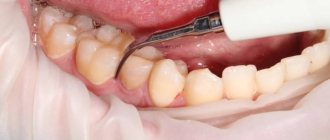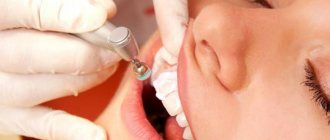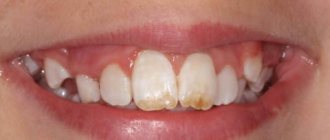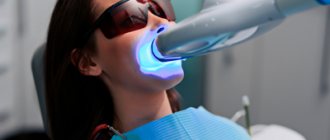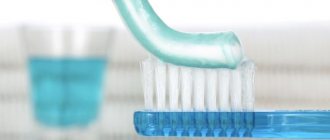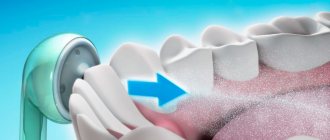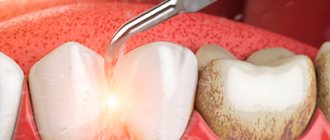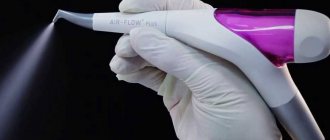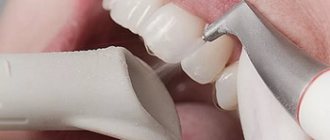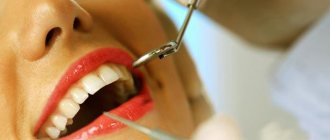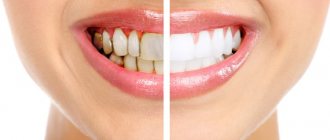As you may have guessed, today’s article will be devoted to the topic of proper dental care. The importance of this issue can hardly be overestimated, and therefore we never cease to remind our patients how to properly brush their teeth at home. Let us immediately note that the Apex dental clinic performs professional oral hygiene, which doctors recommend to carry out once every six months. It is comprehensive teeth cleaning performed by professionals that can prevent the development of many dental problems, thereby ensuring the longevity and health of your smile.
Rules for brushing teeth
There are three basic principles that you can follow to ensure you have good oral hygiene at home. Of course, they all relate to brushing your teeth.
First of all, you need to brush your teeth at least twice a day. It is recommended to do this in the morning after waking up and having breakfast, as well as in the evening before going to bed.
It has long been proven that it is precisely this frequency of brushing of teeth that allows them to be effectively cleansed. However, to ensure proper dental care, it is not enough to brush your teeth twice a day; it is even more important to do it correctly.
Dentists recommend cleaning the lower teeth first and then the upper teeth. This is done starting from the incisors (front teeth), gradually moving towards the lateral teeth.
It is important to make strictly vertical movements with the brush in the direction from the gums to the tips of the teeth. Please note: not in a circular motion, not in a horizontal direction, but strictly vertical! We must not forget about a similar cleansing of the inner surface of the teeth, where even more plaque accumulates.
Another well-known rule for brushing teeth is its duration of 2 minutes. At the same time, cleaning longer can and should be done, while cleaning less is impossible. This is due to the components contained in toothpastes. They can have a beneficial effect on enamel and periodontal tissue only if the duration of teeth brushing is specified previously.
Oral hygiene at home involves cleaning not only the teeth, but also the tongue. This organ of our oral cavity accumulates plaque and food debris, which are a favorable environment for the development of bacteria. That is why bad breath is only a small part of the problems that can be caused by the lack of complete cleansing of the tongue from plaque.
Doctors at the Apex dental clinic recommend that patients use a special brush-scraper for the tongue. It is primitive in its design, has a low price and at the same time allows you to effectively remove plaque from the surface of the tongue. Movements with the scraper are carried out towards the tip of the tongue. Technically, the process is not difficult.
As for the interdental spaces, in order to fully clean them, it is necessary to use dental floss. Cleaning should be careful and careful. The appearance of bleeding gums and discomfort is a sign of errors in the technical execution of the procedure.
The specialists at the Apex dental clinic will take into account all the anatomical and physiological features of the structure of your teeth and recommend the option of a toothbrush and dental floss that is suitable for you.
GENTLE METHODS OF CLEANING TEETH at the dentist
Trehalose powders
Trehalose is a disaccharide (an organic carbohydrate compound) that has a sweetish taste and is also soluble in water. Particle size 30-60 microns. Quickly, effectively, thoroughly, but gently removes biofilm.
When do we use the gentle AirFlow technique?
- with a small amount of pigmentation
- in the presence of soft plaque and for removing biofilm and weakly mineralized dental deposits from supragingival and subgingival surfaces (due to their solubility, these powders can be used in the subgingival zone)
- when performing professional hygiene in children
- in patients with increased tooth sensitivity
- as a preventive procedure to prevent the development of gingivitis, periodontitis and caries
- for polishing the surface of teeth after using calcium carbonate powder
- with complex periodontal treatment and supportive periodontal therapy
- for conservative treatment of mucositis (inflammation of the mucous membrane) and peri-implantitis (inflammation in the area of dental implants)
- for processing orthopedic structures (crowns, veneers)
- for processing composite restorations (fillings)
- for processing orthodontic structures
- for processing implants
These powders have a wide range of indications and have the following advantages:
- delicately and carefully remove plaque without damaging the tooth tissue and mucous membrane
- do not cause discomfort or pain in the patient during operation
- taste good
- do not irritate the mucous membrane
- do not lead to loss of tooth tissue (tooth cement) when working in the subgingival zone
- can be used for work in the subgingival zone, as they completely dissolve in the gingival fluid
- less abrasive in relation to tooth tissues, therefore can be used more often compared to other instruments
- help destroy biofilm (bacteria) and reduce its formation, which is especially important in the presence of periodontal diseases
And we come to the answer to the main question: can the AirFlow technique be dangerous? Maybe, like any manipulation, but only if the indications are not followed, the operating technology is violated and low-quality and uncertified materials are used!
If all necessary conditions are met, the AirFlow procedure is safe and does not harm tooth tissue!
When carrying out professional hygiene procedures in our clinic:
- we use only original powders (based on calcium carbonate, glycine and erythritol)
- we strictly follow the indications for using a particular method
- after using the AirFlow technique, the surface of the teeth is thoroughly polished and the teeth are coated with protective drugs
All this helps to carry out professional oral hygiene in a gentle and high-quality manner and maintain dental health!
Brushing your teeth with an electric brush: pros and cons
Compared to a regular toothbrush, an electric toothbrush has a number of advantages and disadvantages. Thus, the speed of movement of the bristles is hundreds of times higher than that of the electric analogue. Most models also have a built-in timer, thanks to which you can clearly control the duration of brushing your teeth.
Some modern electric brushes are also equipped with a function to monitor basic cleaning parameters. They transmit information to the owner’s smartphone and allow him to have a clear idea of the effectiveness of the cleansing performed.
Electric brushes (if you purchase products of certified quality) allow you to thoroughly clean your teeth without thinning the enamel. The doctors at the Apex dental clinic will help you find out whether they can be used specifically in your case.
In order to evaluate the pros and cons of brushing your teeth with an electric brush, we recommend making an appointment with the doctors at the Apex dental clinic. In each individual case, the doctor may identify some contraindications to the use of an electric brush, and therefore the consultation should not be neglected.
Experienced dentists at the Apex dental clinic will recommend toothbrush options that are right for you, guide you according to the degree of bristle stiffness your teeth require, and also inform you in more detail about the correct technique for brushing your teeth.
Inevitably, over time, due to careless cleaning of food debris and plaque from the teeth, tartar begins to form, which creates a variety of terrible microflora underneath. Microflora, that is, bacteria, lives under the stone. Right there, next to it, food debris accumulates, and the process resumes with renewed vigor, because bacteria live and feed, releasing toxins that destroy everything around, poison the breath and contribute to the development of various diseases, much more serious. Sometimes a person doesn’t even suspect how bad everything is: all the teeth are straight and look smooth. However, their owner does not care that under the apparent prosperity a whole layer of tartar appears in his mouth.
This is where professional cleaning comes to the rescue.
It includes three stages:
● Scaling. Scaling is carried out once every 6 months and is the only effective method of preventing periodontitis and other gum diseases. This is an absolutely comfortable procedure that gives a quick visible effect. All people over 20 years of age need it. For any treatment plan, scaling is the first stage if the clinic operates according to modern standards. It is impossible to make high-quality restoration with inflamed gums. The essence of scaling is as follows: carefully and thoroughly clean the surface of all teeth not only from supragingival, but also subgingival deposits. Dental plaque is removed layer by layer. They are crushed into tiny particles, which are washed out of the water and air by spray. ● “Air flow” system (Swiss system) for removing stains from tobacco, coffee and tea. Formally, it can be compared with a sandblasting unit, but only formally. Only the principles of their operation are similar, when a mixed stream of water, air and tiny, strictly calibrated particles of soda are supplied from a special nozzle to the tooth under pressure. The crystals hit the tooth surface at high speed, cleaning it. A water spray washes them away along with particles of removed plaque and reduces heating of the tooth surface. ● Coating of teeth with a special fluoride-containing gel - covering the teeth with a protective layer. To prevent the occurrence of caries and to reduce tooth sensitivity, preparations containing fluoride are used: “Dentin-liquid”, “Enamel-lequid”, varnishes. Just an hour, and your teeth will be clean and free of tartar and its microflora. We must not forget that with any dental manipulation of your teeth and gums, professional cleaning is simply necessary.
When and why you should use professional teeth cleaning.
● Installation of a crown. To do this, the tooth is ground in a special way, then the master makes an impression of it. At the same time, you refused to use cleaning and saved about 1800 rubles. Naturally, the impression is made with an error at the root of the tooth, and this leads to an insufficiently accurately made crown (the error is literally a few microns - and now this microgap is a real Las Vegas for bacteria in the world of free food and safe reproduction). As a result, after 1.5-2 years, the base of the tooth on which the crown was placed rots from the toxic waste products of bacteria, and the tooth is now only suitable as a trophy on a shelf for excessive frugality. ● Implant placement is a surgical procedure. Before installing it, not only complete professional cleaning is required, but also complete sanitation of the oral cavity. Simply put, it is necessary to cure all adjacent teeth so that not a single infection gets in, because the implant may not take root or severe inflammation will begin. In addition, people with implants should be more careful about their oral hygiene, since the implant is quite finicky. It is made of metal, and by definition the gum will not grow to it, as is the case with the biological root of a tooth; both microbes and food tend to get between it and the gum. Therefore, every six months to a year, the owner of the implant must undergo professional cleaning. Otherwise what? That's right - the implant will fall out, and this is a colossal waste of time and money. ● Next on the list is the notorious caries, which is located between the teeth. And if the teeth are not cleaned, the stones prevent the filling from fitting tightly to the tooth root. The result is an overhanging edge of the filling. As a result, secondary caries develops. That is, food gets into this place, which cannot be removed from there, and therefore bacteria develop. Of course, to be perfect, the filling must fit the tooth perfectly, i.e. the contact between the teeth must be restored. ● Installing braces is a fairly expensive procedure (about 50 thousand rubles). Naturally, during installation, spaces appear between the iron frame and the teeth, which are also impossible to clean on your own. Preliminary cleaning is mandatory in this case. Further cleaning is needed to remove food from the iron fasteners. Here it is worth knowing that in no case should you let this happen to chance, because it will be problematic to treat all your teeth for caries later. But all you wanted was straight teeth... And even if, God willing, everything is fine with your teeth, professional teeth cleaning once every six months (at worst, once a year) will help avoid the development of many diseases. Cleanliness, as we know, is the key to health. And it is cheaper to prevent an illness than to treat it and fill your mouth with fillings, which, among other things, will also hit your pocket.
So, dear friends, prevent the appearance of various toothaches, because a healthy smile and fresh breath are one of the main components of the image of a successful and beautiful person. And if you still have doubts about whether you should pay due attention to professional teeth cleaning, re-read this article. And when you next choose between expensive (that is, high-quality) and dubious (affordable), remember: bitter memories of poor quality last much longer than short-term joy from a low price.
Mistakes in dental care
Despite the fact that brushing your teeth seems to be a simple task, most people make serious mistakes. Insufficient duration of teeth brushing, the use of toothbrushes with unsuitable bristles, toothpastes with unsuitable composition and properties, incorrect teeth brushing technique - all this and much more reduces the effectiveness of the procedure, and sometimes even provokes a deterioration in the condition of the teeth and soft tissues of the oral cavity. !
If you have any questions, you can always ask them to the doctors of the Apex dental clinic at a consultation appointment or contact the administrators at the specified phone numbers. We care about our patients and therefore always share the most valuable information with you!
Consequences of improper teeth brushing
Improper brushing of teeth can lead to serious consequences. It would seem that there is nothing wrong with making mistakes when brushing - however, their systematic and prolonged presence can significantly increase the risk of developing dental pathology.
Firstly, in case of ineffective cleaning of the interdental spaces, the cervical part of the teeth, and in general, plaque remains here, which ultimately causes the development of caries.
Technically incorrect brushing of teeth can lead to bleeding gums, thinning of the enamel, and in some cases, to gingivitis or other dental diseases.
It is worth noting that even if there are no mistakes when performing oral hygiene at home, once every six months it is still necessary to carry out professional teeth cleaning.
At the Apex dental clinic, the procedure is performed by experienced dentists who take into account all the anatomical and physiological features of the structure of the dentofacial apparatus of each patient. They will recommend the most suitable options for comprehensive teeth cleaning and allow you to enjoy the beauty and health of your smile every day!
Why is the procedure needed?
Professional teeth cleaning is a preventive and aesthetic procedure. It solves 7 problems at once:
- prevents the development of caries and inflammatory gum diseases;
- makes teeth whiter;
- carried out as preparation for complex dental treatment (implantation, bite correction, prosthetics);
- adds self-confidence;
- reduces the risk of complications after complex dental treatment;
- removes dark marks caused by coffee, cigarettes and food dyes;
- solves the problem of bad breath if it is caused by tartar.
During home brushing, mineralized plaque remains on the teeth. It can only be removed using professional tools and methods. Therefore, dental cleaning is a necessary procedure for anyone who wants to maintain healthy teeth.
How often should I clean?
Hygienic cleaning must be carried out every morning and evening. Professionally, the procedure is carried out once every six months. This is enough to maintain the result. Additionally, cleaning may be necessary before undergoing complex dental treatment or if you regularly drink coffee or smoke cigarettes.
.
How often should you change your toothbrush?
Dentists recommend replacing your toothbrush every three months. During this period, the bristles become deformed, which prevents complete cleaning of the surface of the teeth.
In addition, when using one toothbrush for an excessively long time, fungi and bacteria are found in its structure. They, in turn, become in most cases the cause of the development of dental pathologies.
Do not neglect the rules of dental care and strictly follow the recommendations of specialists. This way, you will be able to maintain the health of your teeth for many years and visit the dentist exclusively for comprehensive teeth cleaning!
Which toothpaste to choose
Since the choice of toothpaste should be made taking into account all the characteristics of the teeth of each individual patient, it is recommended that you contact your dentist directly with this question.
Doctors at the Apex dental clinic always meet patients halfway and inform interested parties in detail about which toothbrush and toothpaste they should choose.
Today, pharmaceutical companies and other well-known toothpaste brands offer customers a wide range of products, but not every product can boast of its own characteristics.
In this regard, we once again emphasize the importance of resolving this issue together with the attending dentist. Only he will be able to make a truly correct decision, and only he will properly analyze all the components included in the toothpaste.
Once again about how long you need to brush your teeth
Since the optimal duration of brushing is perhaps the most important condition for ensuring proper dental care, we never tire of repeating to our patients about two to three minutes of using a toothbrush and toothpaste twice a day. By providing proper dental care at home and timely comprehensive teeth cleaning at the dentist, you will minimize the risks of developing most dental pathologies. Knowing how long you need to brush your teeth, how to clean them accurately, and how often to change your toothbrush, you guarantee yourself the absence of mistakes in caring for your teeth - and therefore ensure their health.
Rules for caring for teeth after filling
Types of fillings and care features
In the first days after filling
If the filling is temporary
Why does a tooth hurt after installing a filling?
Why is a preventive examination necessary?
A filling cannot replace tooth enamel. No matter how similar it may be in appearance, in terms of its characteristics and properties the filling is significantly inferior to native enamel. First of all, because it has a service life. A filling can protect a tooth for about 3 to 5 years, then it will have to be replaced. With good care and proper installation, the filling can last longer than expected. We'll tell you how to properly care for your teeth after filling, so you don't have to run to the dentist ahead of time.
